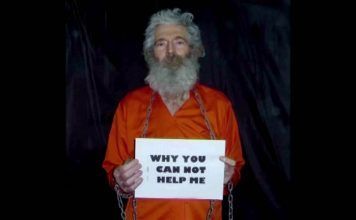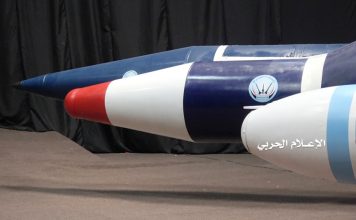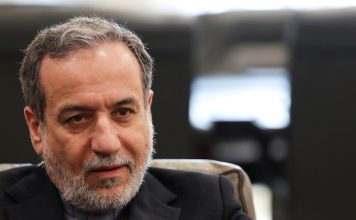By Firouzeh Nabavi
Two female directors of Iranian descent – Maryam Keshavarz and Noora Niasari – won audience awards at the Sundance Film Festival in Utah, which ended Sunday.
Meet our winners representing #ShaydaFeatureFilm & #ThePersianVersion #Sundance #IraniansInFilmTV @sundanceorg @marakeshfilms pic.twitter.com/PkcluFg9Vf
— IRANIANS in FILM & TV (@iraniansinfilm) January 27, 2023
“The Persian Version,” directed by Keshavarz – the story of an extended Iranian-American family that gets together when the patriarch has a heart transplant — won the Audience Award for U.S. dramatic film at the festival. The protagonist, Leila, is a rebellious young Iranian-American (played by Layla Mohammadi) who has a complicated relationship with her immigrant mother because of her sexuality and their differing views on the role of women.
#REPOST @sundanceorg
& The Audience Award: U.S.
Dramatic, Presented by @Acura goes to THE PERSIAN VERSION, directed by Maryam Keshavarz (@marakeshfilms) #sundance
READ MORE HERE: https://t.co/mtwaeSFfMt pic.twitter.com/bpUsrnDggg— Kayhan Life (@KayhanLife) January 27, 2023
Another key cast member is the Iranian-born actor and writer Bijan Daneshmand, known for his roles in “House of the Dragon,” “The Night Manager” and “Deep State.”
In its review of the movie, Screen International described the film as a “joyous autobiographical tale which takes personal dramas and teases out wider reflections on the challenges of a dual cultural heritage and the quest for individual identity.”
“What impresses throughout is Keshavarz’s control of the narrative and command of the medium,” wrote the Screen critic Allan Hunter.
“Shayda,” a debut feature by Niasari – starring Zar Amir-Ebrahimi, winner of the 2022 best actress award at the Cannes Film Festival – won the audience award in the “World Cinema Dramatic” category. The film was executive-produced by the Oscar-winning actress Cate Blanchett and her husband Andrew Upton.
#REPOST @sundancefest
And The Audience Award: World Cinema Dramatic, Presented by United Airlines goes to SHAYDA, directed by Noora Niasari #Sundance @united#kayhanlife
Read more at: https://t.co/mtwaeSFfMt pic.twitter.com/QfcIrTflxY— Kayhan Life (@KayhanLife) January 27, 2023
The cast of “Shayda” also includes Selina Zahednia as Mona and Osamah Sami as Hossein.
“I never would have imagined that one day I’d premiere this film at the same time as a women-led revolution is taking place in my homeland,” said the Iranian-born Australian writer-director Niasari in a Sundance Festival video released before the awards announcement. “I hope that this film can shine a light on the fight for freedom for Iranian women and for all women.”
Niasari described her film as “an intimate drama with thriller elements” that follows “a young Iranian mother, Shayda, and her six-year-old daughter, Mona, as they seek refuge in an Australian women’s shelter. Over Persian New Year, they take solace in Nowruz rituals and new beginnings, but when her estranged husband re-enters their lives, Shayda’s path to freedom is jeopardized.”
Niasari was inspired by the story of her own mother, and drew from personal experience, painting a deeply emotional picture of an Iranian woman’s perseverance and her deep connection to her daughter.
“I was born in Iran and raised in Australia by my Iranian mother,” Niasari said in the video. “When I was five years old, she sacrificed everything: her family, her ties to Iran, her place in the community, to protect us, to live a life on her own terms and to show me the true meaning of courage and resilience.”
“Five years ago, I asked my mom to write a memoir to fill in the gaps of my childhood memories, and the first screenplay of ‘Shayda’ was born from that,” Niasari added.
“And while ‘Shayda’ is inspired by our personal story, it speaks to a universal experience of finding freedom, of being a woman, of being a mother, and finding light in the darkest of times. Above all, this film is a love letter to mothers and daughters, to culture, and to the brave women and girls of Iran.”
This year’s Sundance Festival had a third contestant of Iranian origin: Sierra Urich, director of the documentary “Joonam,” about three generations of women now living in Vermont (US-born Sierra, her mother Mitra and her grandmother Behjat). It chronicles her efforts to connect with and better understand her homeland by learning Persian and interviewing her mother and grandmother.
Niasari holds a BA in Architecture from the University of Technology in Sydney and a masters in Film & TV from the Victorian College of the Arts. In 2015, she was mentored by the late Abbas Kiarostami in a filmmaking workshop in Barcelona.
She started her career in film writing short documentaries, including “Vehicles of Memory” (2009); “Beirut, Under the Bridge” (2011) which was awarded the ‘Special Jury Prize’ and ‘Best Director Documentary’ at the 11th Beirut International Film Festival; “17 Years and a Day” (2013); “The Guard” (2014); and “High Tide” (2015).
She was nominated for: an Australian Director’s Guild Award for “The Phoenix” [Simorgh] (2015); Best Australian Short Film at the Melbourne International Film Festival for “Waterfall” (2017); and New Talent Award at the 24th Sheffield International Doc/Fest for her first long form documentary “Casa Antúnez” (2017).
In 2020, she released her short thriller “Tam.”











